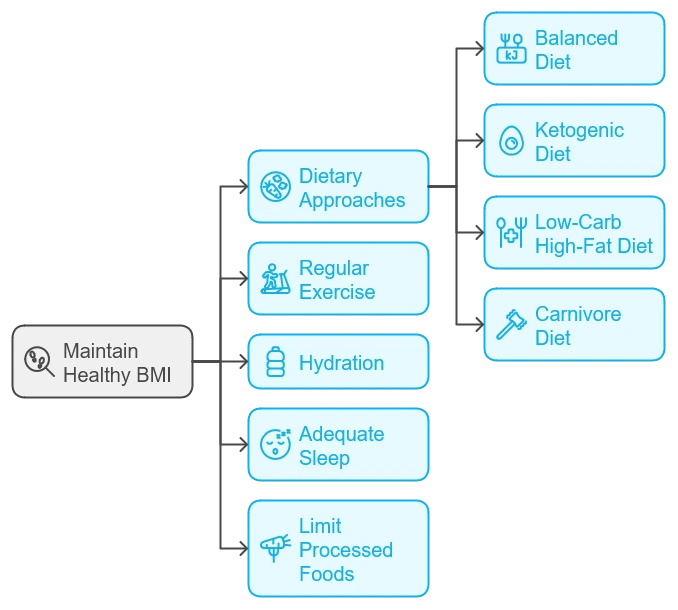BMI Calculator
Welcome to our BMI Calculator! Use this tool to determine your Body Mass Index (BMI) and understand your weight category. BMI is a useful measure to assess whether you are at a healthy weight for your height.
How to Use the BMI Calculator
- Select Your Preferred Unit System:
- Metric (cm/kg)
- Imperial (in/lbs)
- Enter Your Height:
- For Metric: Enter your height in centimeters.
- For Imperial: Enter your height in inches.
- Enter Your Weight:
- For Metric: Enter your weight in kilograms.
- For Imperial: Enter your weight in pounds.
- Click “Calculate BMI”:
- The calculator will display your BMI and the corresponding weight category.
Understanding BMI Categories
BMI is categorized into different ranges to help you understand your weight status. Here is a breakdown of the BMI categories:
| BMI Range | Weight Category |
|---|---|
| Below 18.5 | Underweight |
| 18.5 – 24.9 | Normal Weight |
| 25.0 – 29.9 | Overweight |
| 30.0 and Above | Obese |
Why is BMI Important?
- Health Assessment: BMI is a quick and easy way to assess your health risk based on your weight.
- Disease Prevention: Understanding your BMI can help you take steps to prevent diseases like diabetes, heart disease, and certain cancers.
- Weight Management: Knowing your BMI can motivate you to maintain a healthy weight through diet and exercise.
Tips for Maintaining a Healthy BMI
- Dietary Approaches:
- Balanced Diet: Eat a variety of nutrient-rich foods, including fruits, vegetables, whole grains, and lean proteins.
- Ketogenic Diet (Keto): Focus on high-fat, low-carb foods to induce ketosis, a metabolic state where your body burns fat for energy.
- Low-Carb High-Fat (LCHF): Similar to keto, but with a slightly higher carb allowance, this diet emphasizes healthy fats and proteins.
- Carnivore Diet: Consume only animal products, eliminating all plant-based foods. This diet is rich in proteins and fats.
- Regular Exercise: Aim for at least 150 minutes of moderate-intensity or 75 minutes of vigorous-intensity physical activity per week.
- Hydration: Drink plenty of water throughout the day.
- Adequate Sleep: Ensure you get 7-9 hours of sleep per night.
- Limit Processed Foods: Reduce your intake of sugary drinks, processed foods, and unhealthy fats.

Frequently Asked Questions
Q: What if my BMI is in the overweight or obese category?
A: If your BMI falls into the overweight or obese category, it’s important to consult with a healthcare provider. They can provide personalized advice and a plan to help you achieve a healthier weight.
Q: Is BMI the only measure of health?
A: No, BMI is just one indicator of health. Other factors such as muscle mass, body fat percentage, and overall fitness level also play a role in determining your health status.
Q: How often should I check my BMI?
A: It’s a good idea to check your BMI periodically, especially if you are making lifestyle changes to improve your health. Aim to check it every few months to track your progress.
